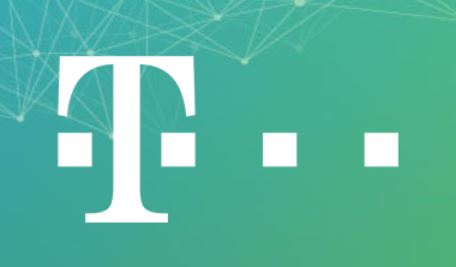In our Compelling Conversations series, Deutsche Telekom told us all about its deployment of Nuance Voice Biometrics and revealed why it centered the project around its customer experience.
When you hear that a company is changing the way it authenticates its customers, it’s natural to think that fraud prevention must be the key driver. But that isn’t always the case.
In our Creating Compelling Conversations webinar series, we spoke to an industry leader whose security strategy looked a little different. Leon Denk, Product Manager at Deutsche Telekom, Europe’s largest telecommunications provider, told us all about the company’s implementation of Nuance Voice Biometrics. He gave us an in-depth look at the company’s new VoiceID service and revealed why its deployment of the technology wasn’t motivated solely by security.
You can still listen to the full conversation with Deutsche Telekom by signing up on the event page, but in the meantime, we’ve gathered some of the key insights the telco leader had to share.
More than just standout security
With more than 168 million mobile customers, Deutsche Telekom faces a massive customer service challenge every day. It has thousands of customers calling about hundreds of different issues, and it’s continually looking for ways to improve the customer experience.
Authentication has always been a point of friction in the customer journey for sectors like telecommunications—it’s necessary to keep customers safe, but it’s often a time-consuming process. Previously, Deutsche Telekom used a traditional numeric authentication method that required customers to remember a sequence of numbers unique to them. But this meant that customers always needed that information to hand when they called, making the process inconvenient and slow.
Deutsche Telekom wanted to deploy voice biometrics to keep its customers safe—but its core focus was creating a seamless customer experience. It wanted its customers to be able to contact the company from wherever they are—whether it’s in the car or in their home—and get fast solutions to their problems.
“Voice biometrics doesn’t require the customer to remember any information, which means they’ll always have their authentication method to hand,” says Leon. “Obviously, there are huge security benefits to the technology as well, but our driving force for the investment was definitely the customer experience.”
Effortless authentication, smoother customer journeys
Deutsche Telekom used Nuance Voice Biometrics to create VoiceID, its seamless customer authentication method. Customers opted into VoiceID can be authenticated from the simple phrase, “My voice is my password”, without the need for awkward numeric sequences. More than 600,000 customers have registered for the service, and it’s made over 1.2 million authentications so far.
From the perspective of Deutsche Telekom’s customers, it’s had a big impact on the overall customer service journey. The company surveyed customers at every point of the process, from registration to final authentication, and the feedback has been overwhelmingly positive. “Many of our customers see our voice biometrics as futuristic and modern,” says Leon. “And with so many data breaches in the news lately, it makes them feel safer too.”
It has also proven popular for Deutsche Telekom’s employees. “Our agents can feel confident that they’re always talking to a genuine customer who’s been authenticated,” says Leon. “And our legal team like it because we’re not saving any data from our customers, making it simpler to comply with GDPR.”
Seamless experiences backed up by robust security
While improving customer experience was the core reason for Deutsche Telekom’s voice biometrics deployment, there are still some major security benefits that come with it too.
Unlike other biometric solutions like face recognition and fingerprint scanners, voice biometrics has unique anti-spoofing measures that make it a more secure authentication method. Analyzing over 1,000 micro-characteristics of the human voice—covering everything from the flow of a person’s speech to the individual’s physical characteristics—it’s harder to penetrate with fraud attempts like deep fakes and recorded audio. And that’s a big reason why it’s the main type of biometrics used by law enforcement authorities.
Deployments like Deutsche Telekom’s prove that great customer experience doesn’t need to come at the cost of security—the two can work side by side to create secure, seamless customer journeys.
Join us for our next session
There’s still much more to come from our Creating Compelling Customer Conversations webinar series—including some exciting conversations that will further explore the topic of security and authentication.
In just a few weeks, we’ll be talking to the lead analyst and founder of Opus Research about his experience with authentication methods in the market, as well as pensions company Banorte Pensions about how it’s using Nuance Biometrics to create standout customer experiences.







